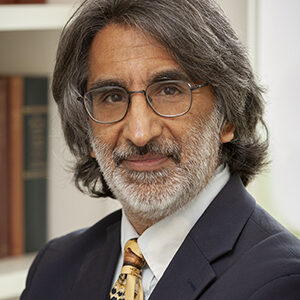African American Political Thought
Learn how the political tradition of Black Americans has made an indelible impression on American history.
Mondays | March 2025
Online
It may seem strange to call someone who never held government office a “statesman,” but Booker T. Washington has a claim to that august title. His admirers regularly drew the comparison between Washington and his namesake, George Washington. Like President Washington, Booker T. Washington had as his primary project the strengthening of fraternal bonds between citizens, believing such bonds to be the necessary foundation for constitutional liberty.
In his Farewell Address, George Washington had prayed that “Union and brotherly affection may be perpetual.” Despite these words of counsel, the Union nearly foundered on the moral and geographic sandbar of slavery. After the Civil War, there was tremendous work to be done, as Lincoln said, “to bind up the nation’s wounds” and “to achieve and cherish a just and lasting peace, among ourselves.” This was the task that Booker T. Washington set for himself. Not only did he put forth a solution to the main problem left unresolved by the Founding Fathers—whether and how blacks would become full participants in the American polity—but he also made significant strides in implementing that solution. This virtual seminar will delve into Washington’s writings to understand both his remarkable personal accomplishments and his redemptive moral vision and subtle statesmanship.
Image: Smithsonian American Art Museum, Gift of the Harmon Foundation.
Diana Schaub on Booker T. Washington
This course is offered by Humanities at Hertog. It takes place weekly on Mondays, via Zoom, from 6 PM to 8 PM ET. Fellows will receive a $150 stipend contingent upon participation in the course and completion of a brief response paper. All course materials will be provided.

Diana Schaub is a nonresident senior fellow at the American Enterprise Institute (AEI), where her work is focused on American political thought and history, particularly Abraham Lincoln, Frederick Douglass, African American political thought, Montesquieu, and the relevance of core American ideals to contemporary challenges and debates. Concurrently, she is Professor Emerita of Political Science at Loyola University Maryland, where she taught for almost three decades.

Diana Schaub is a nonresident senior fellow at the American Enterprise Institute (AEI), where her work is focused on American political thought and history, particularly Abraham Lincoln, Frederick Douglass, African American political thought, Montesquieu, and the relevance of core American ideals to contemporary challenges and debates. Concurrently, she is Professor Emerita of Political Science at Loyola University Maryland, where she taught for almost three decades.
An expert in political philosophy, Dr. Schaub has lectured on a variety of topics and participated in conferences around the country. She has contributed chapters to multiple books on Shakespeare, liberal education, women, and religion, and she is the author of three books: His Greatest Speeches: How Lincoln Moved the Nation (St. Martin’s Press, 2021); What So Proudly We Hail: The American Soul in Story, Speech, and Song, coedited with Amy and Leon Kass (ISI Books, 2011); and Erotic Liberalism: Women and Revolution in Montesquieu’s “Persian Letters” (Rowman & Littlefield, 1995). Her monograph Emancipating the Mind: Lincoln, the Founders, and Scientific Progress (AEI, 2018) is based on her remarks at the 2018 Walter Berns Constitution Day Lecture.
Dr. Schaub has also been published in the popular press, including in the Baltimore Sun, the Claremont Review of Books, Commentary, and the Wall Street Journal.
Dr. Schaub has a PhD and an MA in political science from the University of Chicago. Her BA in political science is from Kenyon College.
Readings:
Discussion Questions:
Readings:
Discussion Questions:
Readings:
Discussion Questions:
Readings:
Discussion Questions:

Diana Schaub
Diana Schaub is a nonresident senior fellow at the American Enterprise Institute (AEI), where her work is focused on American political thought and history, particularly Abraham Lincoln, Frederick Douglass, African American political thought, Montesquieu, and the relevance of core American ideals to contemporary challenges and debates. Concurrently, she is Professor Emerita of Political Science at Loyola University Maryland, where she taught for almost three decades.

Thomas Merrill
Thomas Merrill is an associate professor in the School of Public Affairs at American University. He is the author of Hume and the Politics of Enlightenment. He is also the co-editor of three edited volumes, including The Political Thought of the Civil War.

Akhil Reed Amar
Akhil Reed Amar is Sterling Professor of Law and Political Science at Yale University, where he teaches constitutional law in both Yale College and Yale Law School. He is Yale’s only currently active professor to have won the University’s unofficial triple crown — the Sterling Chair for scholarship, the DeVane Medal for teaching, and the Lamar Award for alumni service. He hosts a weekly podcast, Amarica’s Constitution.

Adam J. White
Adam J. White is the Laurence H. Silberman Chair in Constitutional Governance and senior fellow at the American Enterprise Institute, where he focuses on the Supreme Court and the administrative state. Concurrently, he codirects the Antonin Scalia Law School’s C. Boyden Gray Center for the Study of the Administrative State.
Judge Roy Altman
Judge Roy K. Altman, at 36, became the youngest federal district court judge in the country—and the youngest federal judge ever appointed in the Southern District of Florida. He received his BA from Columbia University and his JD from Yale Law School, where he was projects editor of the Yale Law Journal. After law school, Altman clerked on the 11th Circuit Court of Appeals for the Honorable Stanley Marcus.